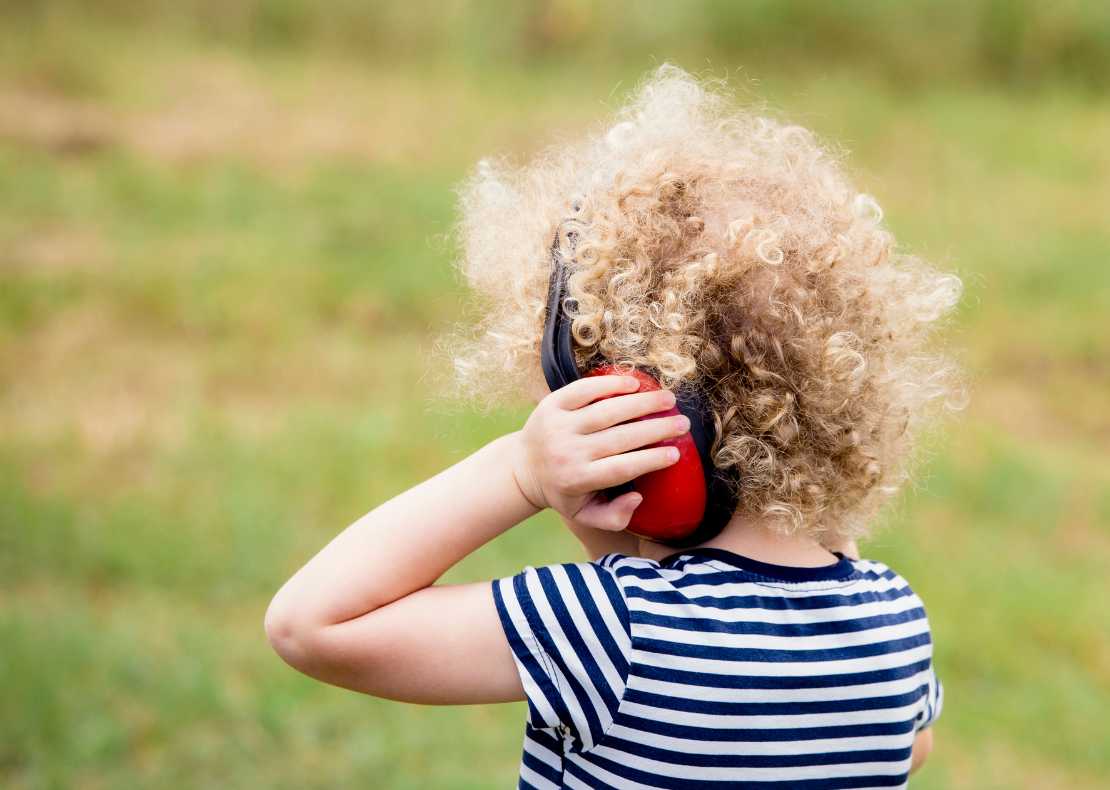
People with Sensory Processing Disorder (SPD) often report auditory sensitivity, meaning they’re highly sensitive to noise. It can make everything from shopping to fire drills difficult to manage. Unpredictable sounds, such as a dog barking, horn blaring, or sounds of a certain frequency, can be very overwhelming. It’s not always possible to avoid sounds, especially unpredictable ones, which is why it’s important to identify the signs, causes, and symptoms of overload, and how to help.
Signs of auditory sensitivity
There are common signs of sound sensory issues, but it goes without saying that everyone is different! My two children, for example, don’t experience sound sensitivity in the same way. Some common signs of auditory hypersensitivity are:
- They may dislike loud or unexpected sounds such as sirens, dogs barking, alarm bells or fireworks.
- They may startle easily when experiencing unexpected sounds, such as a loud car going past.
- They may dislike higher-pitched sounds, such as vacuum cleaners or hand dryers.
- They may have difficulty with low-hum-pitched sounds, such as fridges or other electrical systems.
- They may be easily distracted by background noises, such as traffic outside, background music, fans, a refrigerator or buzz from overhead lights.
- They may notice sounds that others don't notice.
- They might instinctively cover their ears to sounds.
- They could dislike places with loud noises, such as the cinema, stadiums or supermarkets.
What causes auditory sensitivity?
Auditory sensitivity can occur for a number of reasons! It may be due to a medical condition, such as tinnitus, or there may be a problem with the ear structure. It may even be a side effect of medication, and you should seek support from a medical professional. If there’s no medical reason to explain auditory sensitivity, it’s thought that the brain isn’t processing sounds correctly. When people have sound processing issues, their brain has difficulty organising and responding to information that comes in. The part of the brain that receives and filters noise pays more attention to sounds than it needs to, often seen through the difficulty of ignoring background noise. When Georgia had a hearing test, we got told she had “supersonic hearing”, so no wonder she’s so affected by sounds! Again, each person is different, so there may be different sounds that overload them.
What’s overload?
Overload happens when the amygdala, the part of the brain which takes in sensory information, is overwhelmed by sounds. This might be due to the difficulty of processing all of the noises at once, or it could be the struggle of paying attention to all of the audio information at the same time. Even certain sounds, such as hand dryers and vacuum cleaners, can be painful! It’s thought this is due to the amygdala processing the sounds with higher intensity. It’s important to remember that EVERY PERSON IS DIFFERENT, so, the sounds one person finds challenging won’t necessarily be the same as another. If someone is overloaded, they may need help with calming themselves down. I’ve found that a lot of the calming and relaxing aids help, while also being useful when managing hyperactivity and aiding with sleep.
So how can I help?
By reading up on this, you’re already helping. You now understand that their responses are driven by the sensory traffic controller in their brain, and not naughty or difficult behaviour. It’s simply a reaction to having difficulty processing the sounds that they are hearing in the environment. There are other ways to help children and adults who experience auditory sensitivity:
- Have ear defenders or noise cancelling headphones available for the child to use in situations that might be noisier (e.g. supermarket, public event, bonfire night). My Georgia absolutely hates fireworks and places with lots of people, but she manages a lot better with her headphones on, she’s even put stickers on them to make them hers! Jordan loves his Vibes ear defenders, perfect for those over 6.
- Have patience and leave extra time between instructions and before you repeat instructions to avoid auditory overload.
- Identifying and reducing the sound distractions in the environment when they need to work and focus, such as turning distractions off or using headphones. My son Jordan used to get up and turn off the vacuum because he hated the sound so much, so I tried to only vacuum when he was out of the house.
- Supporting overall sensory regulation throughout the day.
If you want help finding the right products for yourself or someone you support, contact us today.








